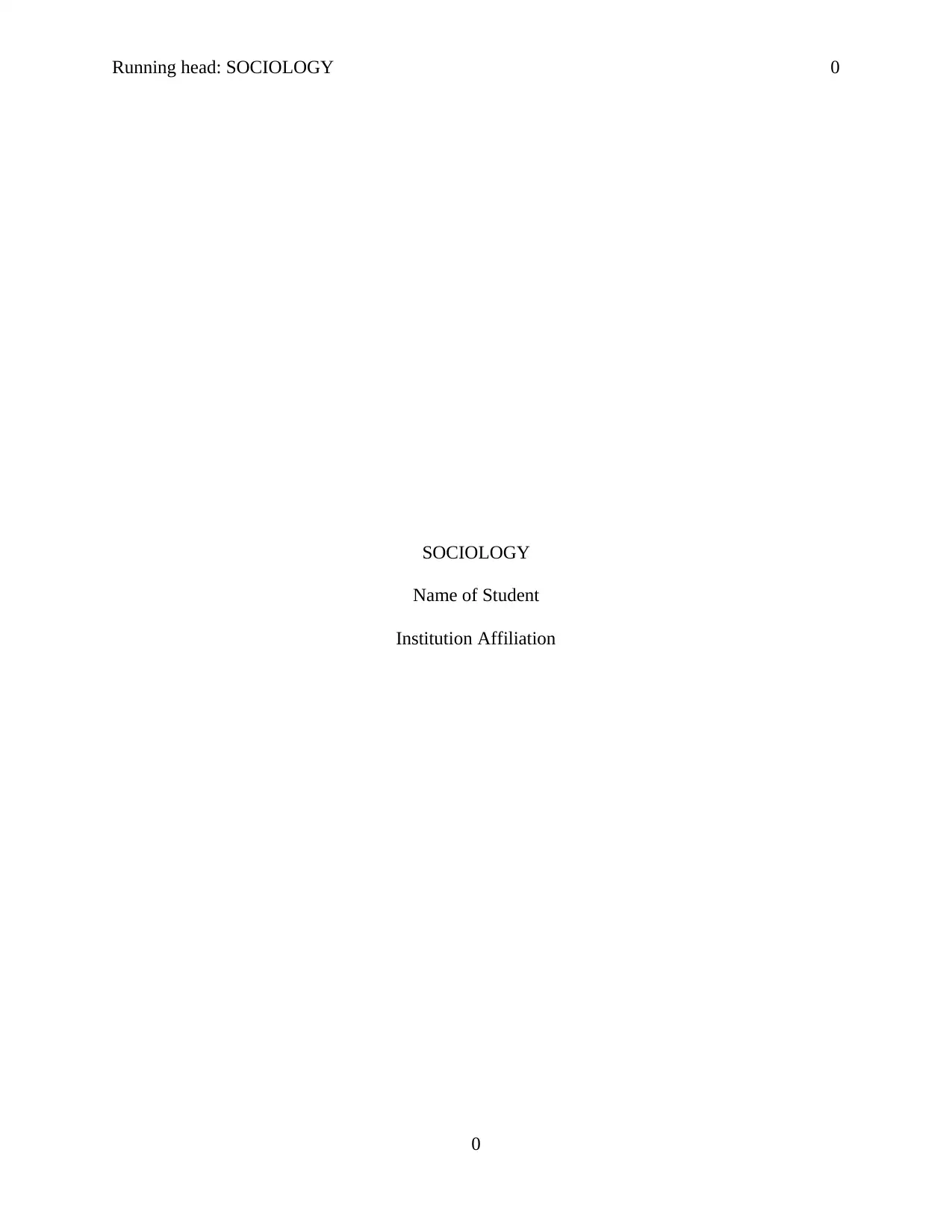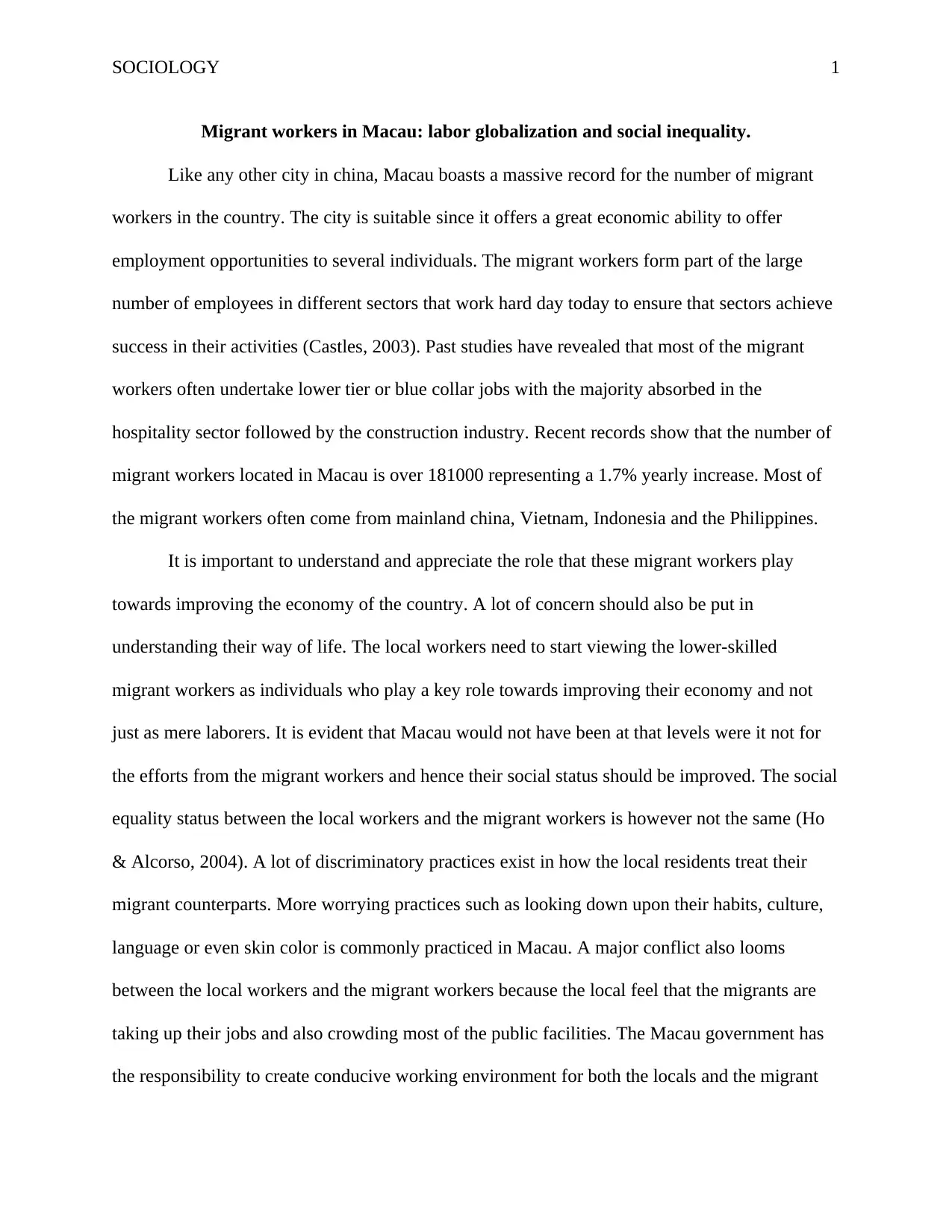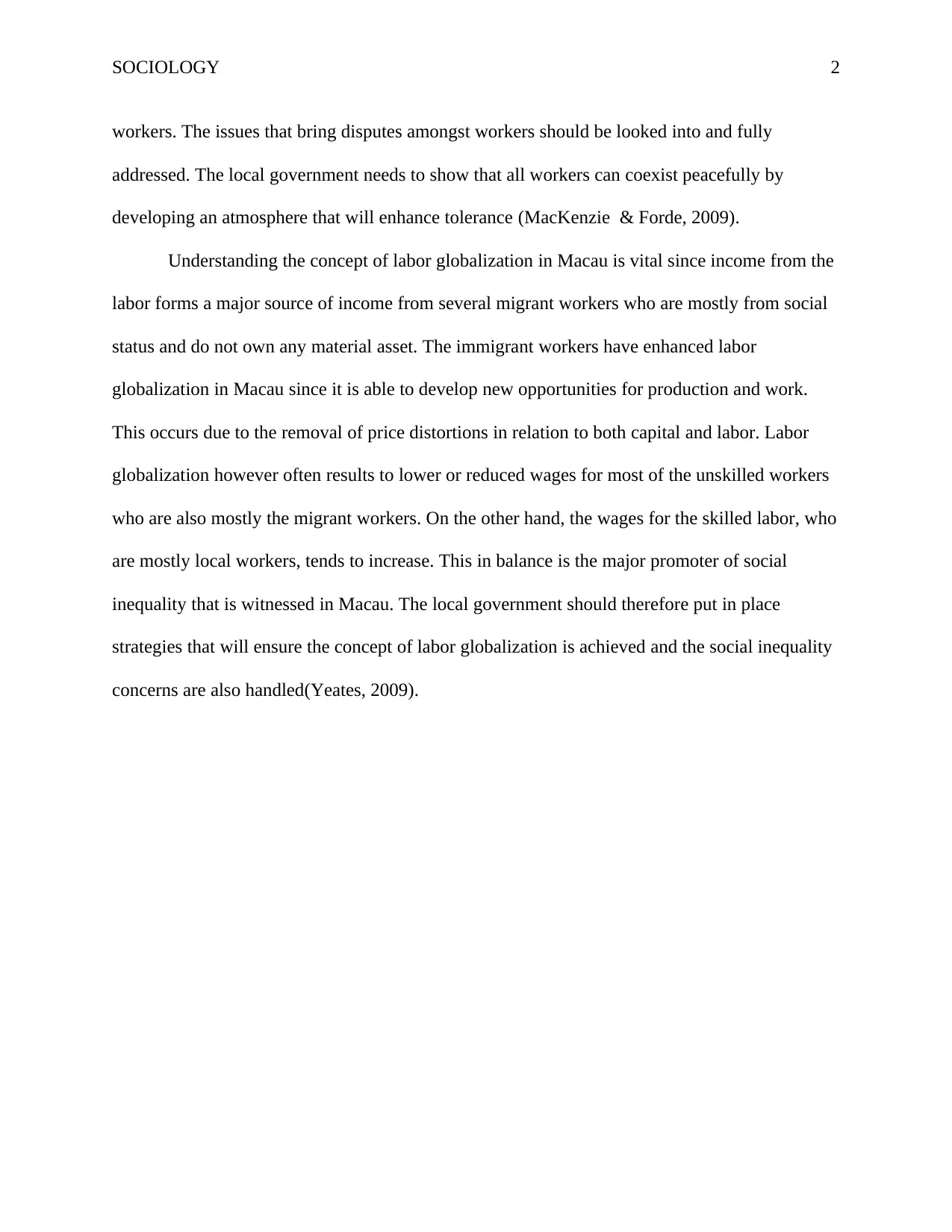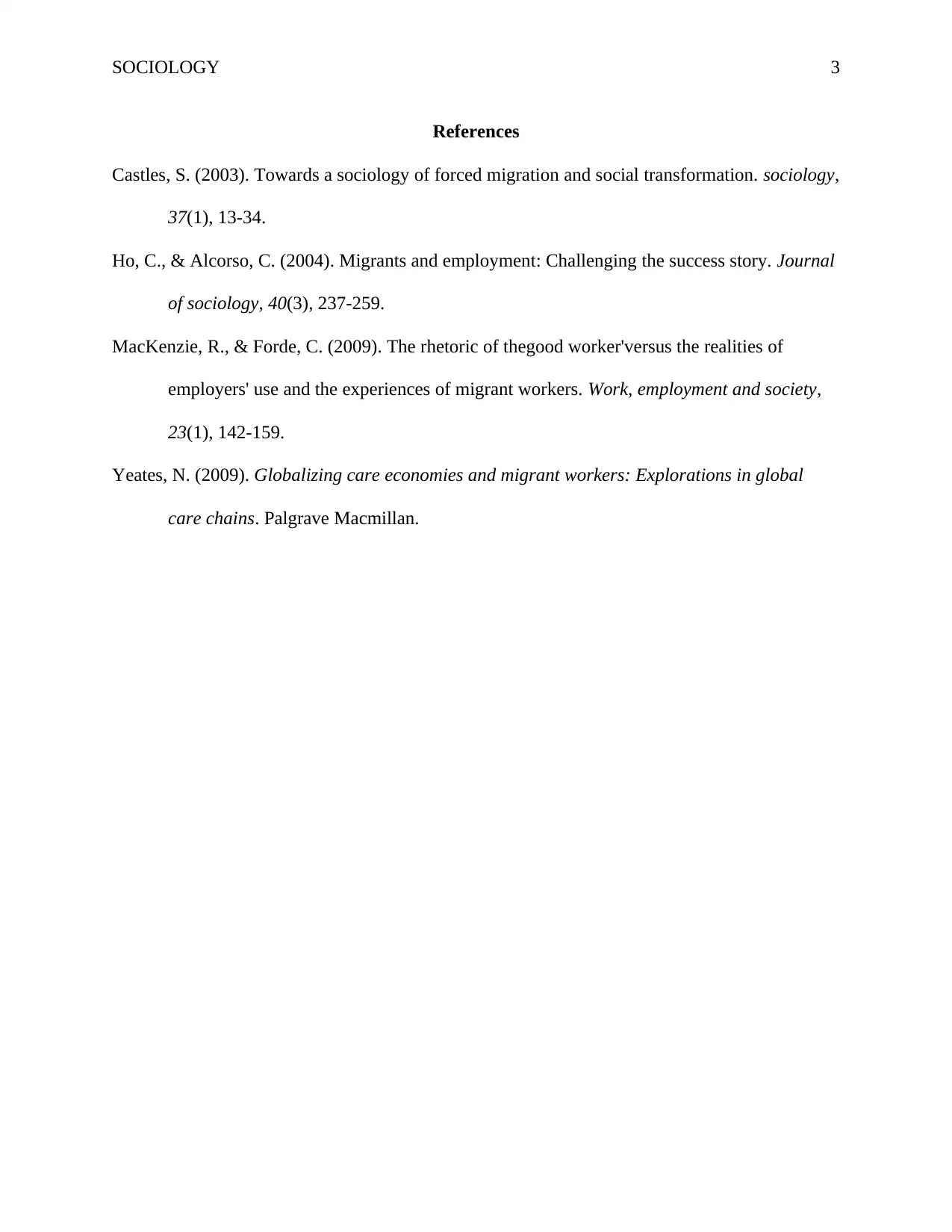Macau's Migrant Workers: Labor, Globalization & Inequality
VerifiedAdded on 2023/05/29
|4
|733
|56
Essay
AI Summary
This essay examines the social and economic conditions of migrant workers in Macau, focusing on the impact of labor globalization and the resulting social inequalities. It highlights the significant role migrant workers play in Macau's economy, particularly in the hospitality and construction sectors, while also addressing the discriminatory practices they face from local residents. The essay discusses how labor globalization, while creating opportunities, often leads to lower wages for unskilled migrant workers, exacerbating social inequality. It emphasizes the need for the Macau government to foster a more inclusive environment, address disputes between local and migrant workers, and implement strategies to balance the benefits of labor globalization with the need for social equity. The study uses research to explain the issues, and the references help to support the arguments and suggestions that are provided.
1 out of 4











![[object Object]](/_next/static/media/star-bottom.7253800d.svg)